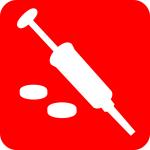In a surprising turn, media outlets just began reporting that Procter & Gamble, the maker of Pampers diapers, has been steathily removing and replacing Sesame Street characters on their product since the start of the summer.
pediatrics
In their zest for trend-spotting, the Wall Street Journal just published a piece on exhausted new parents seeking out pricey
In a story that speaks for itself, King Bio has issued a voluntary nationwide recall out of “an abundance of caution” of thirty-two kids and infant products that could be contaminated
As a society, are we losing our grasp for the obvious and the most basic, fundamental understanding of how to nurture the next generation and each other?
The Centers for Disease Control and Prevention (CDC) just released their 2018 breastfeeding report card.
I had the distinct pleasure of being a guest on CUNY-TV’s Smith Sabatino Show yesterday.
Identifying characteristics are essential to ensuring patient safety - so that the right treatment meets the right patient. Did you ever consider how many times you are asked your name and date of birth when seeking medical care?
The account of the Virginia-based Red Hen restaurant owner insisting Press Secretary Sarah Sanders leave the premises due to presumed political differences has been playing on a loop of social and mainstream media punditry.
Dietary supplement use, albeit nutritional products or alternative medicines, is a very lucrative industry that is for the most part riddled with overly auspicious claims in support of the notion they are a panacea.
The “opioid epidemic” consistently addressed in the news, by politicians and throughout social media conflates many aspects of the issue, often speaking interchangeably about prescription medications and illicit drugs.











